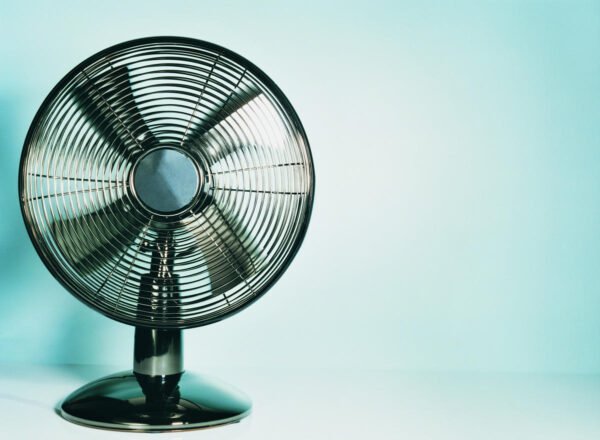
UK Heatwave Next Week: How Much Does it Cost to Run Fan or AC Overnight?
Data shows how much running a fan or AC will cost you per week, plus some energy-saving tips by energy experts
The Met Office is predicting 30C ‘heatwave-like weather’ to bake Britain for seven days. Brits may finally see summer arrive after weeks of rain, with almost all of the UK set to bake in ‘near’ heatwave conditions over the next week as high pressure arrives from northern Africa.
Many of us will be bringing down our fans from the loft to help us sleep next week, as heatwave conditions will hit parts of the UK.
But how much do they cost to run? Energy experts at Heat Pumps have shared new data on how much it costs to run a fan to help Brits struggling with the heat next week.

Whether it’s a desk fan for battling the heat while working from home, or a bigger one to keep the bedroom fresh at night, most Brits like to get one sorted before the summer months hit.
Even though energy bills are on their way down, it’s still worth knowing how much these bits of kit cost to run to keep cool.
While summer does mean less need for the tumble dryer and heating, keeping cool can easily cancel out those savings if you’re not careful with your trusty cooling kit.
How much energy do fans use?
Let’s say you’re using a typical 73W box fan to catch some sleep during these warm nights. Here’s how much it would cost to run it for nine hours a night all week, based on the current June energy prices (24.5p per kWh):
- The fan uses 0.073 kWh of electricity every hour
- Over nine hours, that’s about 0.65 kWh per night
- Running it for a whole week adds up to roughly 4.6 kWh (0.65 kWh/night 7 nights)
- At 24.5p per kWh, that works out to be around £1.12 (4.6 kWh 24.5p/kWh)
Table fans, on the other hand, typically use around 0.1 kWh. Based on that and the current energy tariffs, running a table for nine hours a night all week would cost roughly £1.54.
Portable handheld fans are incredibly cheap to power. It will cost you only £0.15 for the whole week if you run it for at least 9 hours each night.
What about ACs?
For households who have split AC unit expenditures, the costs are even higher. Running a typical 480W unit for nine hours a night all week will cost you £7.41 based on current energy prices.
Those who have built-in air conditioning units will pay £7.16 for nine hours or if they keep it running for nine hours a night all week they’ll pay a whopping £50.14.
An energy expert at Heat Pumps commented on the costs:
“Fortunately, relying on energy-intensive appliances to stay cool isn’t always necessary. A few simple strategies can be equally effective. Drawing your curtains during the day prevents sunlight from overheating your home. Additionally, chilling a water bottle in the refrigerator can provide a refreshing source of coolness at night.”
Alongside its data, Heat Pumps also shared some energy-saving tips:
- For a refreshing breeze, strategically position a bowl of ice cubes in front of your electric fan. As the air circulates, the ice will cool it, creating a pleasant current throughout the room.
- Draw the curtains during the day. While natural light is desirable, direct sunlight can significantly raise the temperature inside, making your home feel uncomfortably warm.
- Consider unplugging unused electronics. Even in standby mode, many devices generate heat, which can contribute to a warmer room.
- Maximise natural light during the summer months. With longer evenings, you can rely less on artificial lighting. Turning off lights not only saves energy but also helps keep rooms cooler, as traditional bulbs generate a surprising amount of heat. In the future, consider switching to LED bulbs, which emit significantly less heat.
- Consider using a hot water bottle for cooling, by filling it with chilled water instead of hot water to create a simple yet effective makeshift ice pack for use during the night.












































